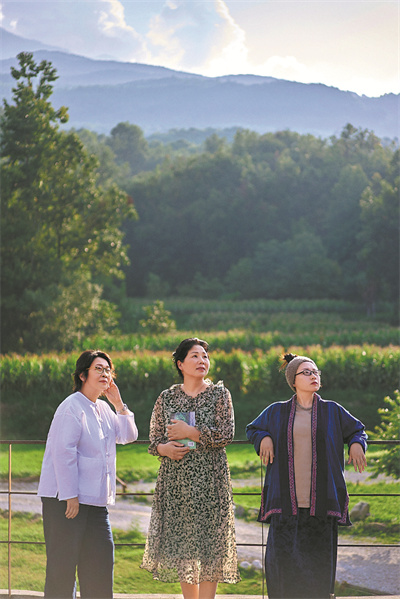

Soon after, she had the aforementioned face-to-face interview.
Liu, clad in a red coat, gradually opened up to Zhang after they spent three days together.
When asked why she liked to wear bright red clothes, she said, "My clothes reflect a desire of mine — I want to live a more exciting life. I would rather endure the pain of discontent than become numb.
"It's not just about having food, clothes and shelter. I'm not satisfied with just that. I want a fulfilling life, I want knowledge, I want to read books, I want to watch TV and gain what I want from it — because I can't go to the outside world."
On March 23, 2002, the episode featuring Liu aired on television.
At the episode's end, Zhang commented, "When basic needs are scarce, survival is the focus. With plenty, the focus turns to the painful pursuit of spiritual fulfillment. In this sense, Liu represents each one of us."
The episode sparked wide discussion and resonated with a large audience.
People were touched by her poetic expressions such as, "I may be in pain, but I am not sad. Perhaps my pain is also a form of transformation", and "when someone longs for something, there is a gleam in their eyes".
A junior high school student named An Xiaoqing from the mountainous area of Daliangshan, Sichuan province, was among the viewers.
"That was the first time I saw an ordinary Chinese woman on a State media platform talking about her dissatisfaction and confusion with existence," An recalls.
Liu's words lingered in An's mind as she emerged from the mountains, enrolled in Chinese studies at Beijing Normal University and then became a features reporter.
An never forgot Liu and harbored a strong curiosity about her subsequent life.
In the winter of 2020, An finally visited Liu in person.
"Upon meeting her, I felt like a messenger at her doorstep, delivering 'letters' and 'packages' from the outside world — carrying within them the audience's curiosity, kindness and genuine concern for her," An recalls.